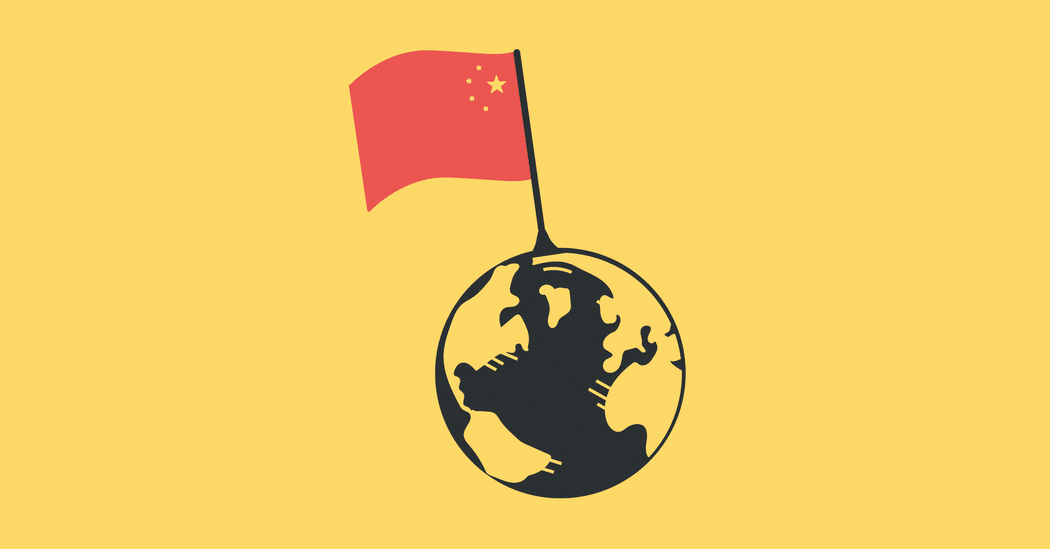The CCP’s claims of “democracy with Chineses characteristics”
On Aug. 24, the Chinese Community Party (CCP) newspaper People’s Daily broke Pompeo’s criticisms down into 26 points to offer its rebuttal. It argued that the party had remained true to “democracy with Chinese characteristics” for the sake of the people; that China had named anti-hegemonism as a basic norm of its foreign policy and adhered firmly to the international order; that it had disclosed all information on the virus in a transparent manner and shared knowledge with the international community on how to overcome it; that it had accepted US demands concerning unfair trade practices” and was competing with the US through innovation and research and development (R&D) investment; that the industrial espionage accusations were “absurd”; that the Hong Kong security law was a matter of internal administration that only applied to those colluding with separatists and outside forces to undermine the country’s foundations; that the camps for Uyghur political prisoners were settings for psychological and professional training for “potential terrorist elements”; and that the security of routes on the South and East China Seas was firmly guaranteed by international law. In short, it claimed that everything Pompeo had said had been untrue. According to the People’s Daily, its counter-arguments were all based on objective facts and the arguments of commentators and researchers studying the West. But for three reasons, Beijing’s position is difficult to accept at face value.
China’s strategic ambiguity and confusion
First, there is the strategic ambiguity and confusion seen with the Chinese administration. Since coming to power, President Xi Jinping has espoused “peaceful development” and harmonious prosperity with all of humankind; a human “community of destiny”; a “new type of great power relationships” that involves cooperating and competing with the US while saying what needs to be said; policies based on principles of “amity, sincerity, mutual benefit, and inclusiveness (qin cheng hui rong)” with China’s neighbors; and a “New Asian Security Concept” that involves seeking out common, comprehensive, cooperative, and sustainable security with other Asian countries.
But contrary to the claims of “peaceful development,” China’s recent actions leave it open to criticisms that it is attempting to rise to great power status, and that its “Belt and Road Initiative” proclaiming a human community of destiny is in reality a form of neo- imperialism. China’s constant strife with its neighbors casts a pall on “qin chen hui rong” principles, and the New Asian Security Concept — which had raised expectations among other Asian countries — has long since lapsed to the level of rhetoric without substance. All that remains is the “new type of great power relationships” vision. This sort of strategic ambiguity and confusion has damaged trust among China’s neighbors.
Questions surrounding Beijing’s “ethical leadership”
Second, there has been an active debate over “ethical leadership” in China ever since the US’ international standing was dealt a severe blow by the White House’s “America First” policies. Yan Xuetong, a professor at Tsinghua University, quoted the legalist thinker Sun-tzu as saying that there are three kinds of leadership in the world: the way of the king, who wins people and all things through virtuous leadership; the way of might, where a leader acquires some things through political and military power; and the way of force, which might be enough to plunder a single state. In Yan’s argument, China should choose the way of the king to triumph over the US.
It is true that China’s international stature has been boosted by large-scale development aid and the recent success with containing the virus. But is China capable of winning the hearts and minds of the world by demonstrating moral leadership that surpasses the US? A look back at its attitude toward South Korea during the Terminal High Altitude Area Defense (THAAD) system row, its actions in the South China Sea, and the “wolf warrior diplomacy” that has been talked about by its people since the coronavirus erupted shows that China’s current approach to foreign affairs is closer to the way of might or force than to the way of the king.
Chinese vs. US exceptionalism
Finally, there is the issue of Chinese exceptionalism. The US also espouses its own form of exceptionalism, but it has sought to legitimize that through universal values of freedom, democracy, and human rights. In contrast, China’s version of exceptionalism does not contain any convincing universal elements. It merely emphasizes China’s specialness, with its talk of a “civilized country,” “socialism with Chinese characteristics,” and “democracy with Chinese characteristics.” This wouldn’t be a problem if China were an ordinary country. But if it wants to become a leader for the rest of the world, it has to make a choice: either to proclaim China’s specialness to the rest of the world and turn that into a global standard, or to reach some compromise between China’s specialness and universality. If it does the first, it stands to face a harsher backlash from critics blasting “world dominance under the Chinese model.” In the end, the only real option is the second one. This will require flexibility and transformation on the part of the Chinese leadership.
If China is to avoid a “new Cold War” with the US and establish itself as a respected power, it needs to make the direction of its national strategy clear. This will be possible when it stays true to its course of peaceful development, demonstrates the “way of the king” through its actions, and wisely harmonizes China’s particularities with global universals.

- Moon Chung-in is senior advisor to the president of South Korea and professor emeritus at Yonsei University. He is also a prominent PCI board Member.

